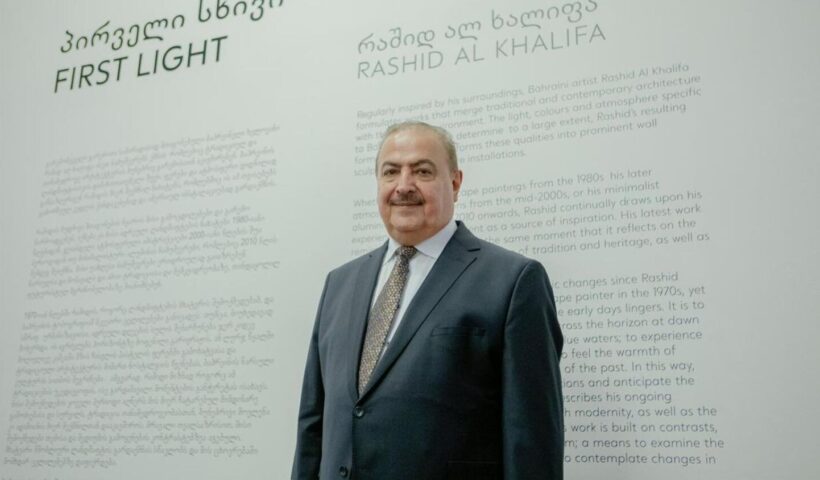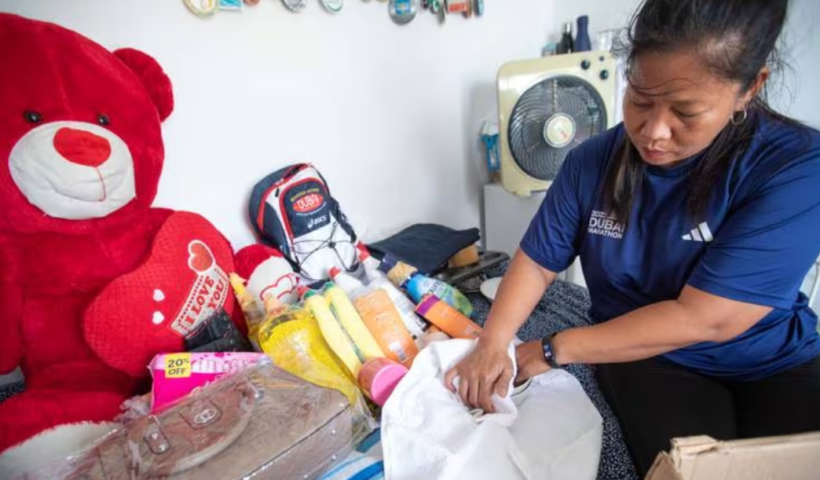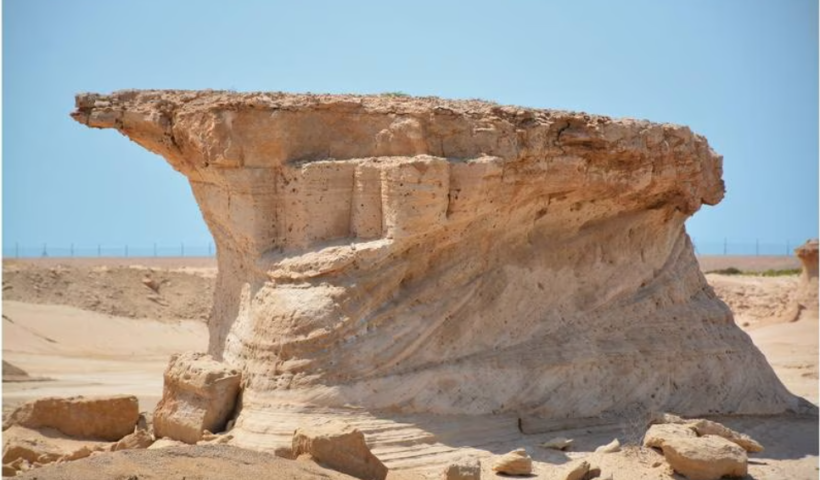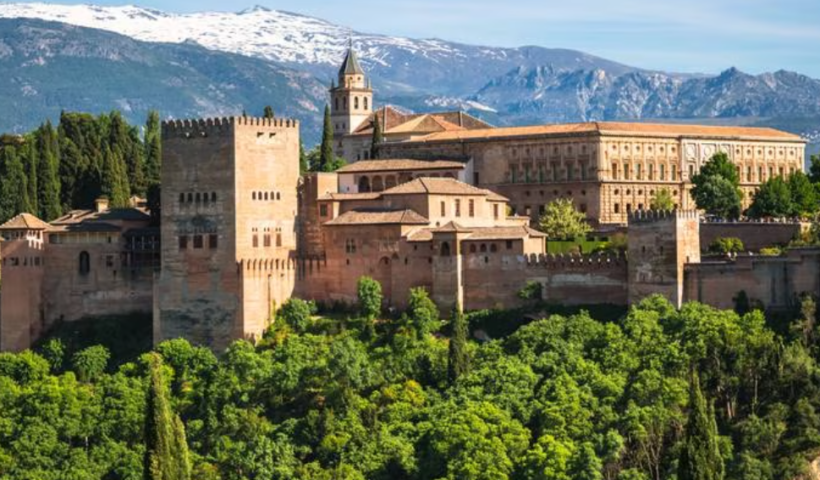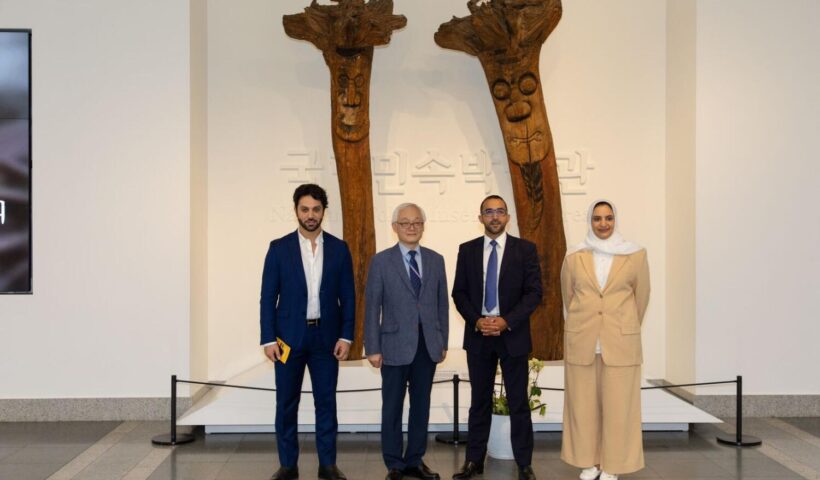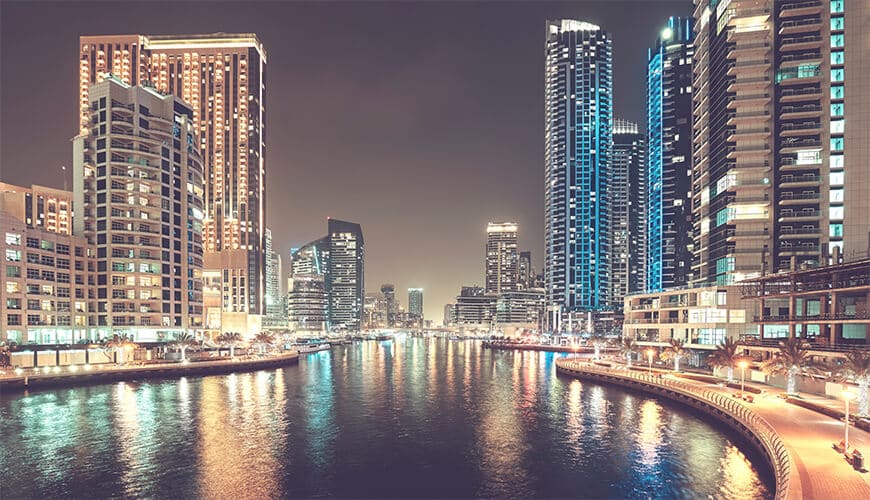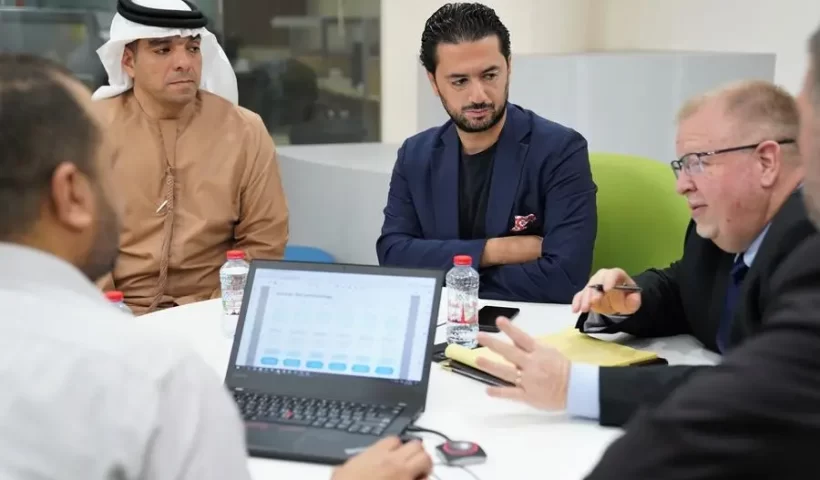A multifaceted man, Shaikh Rashid bin Khalifa Al Khalifa is a member of the Bahraini royal family. He is an artist, art collector, chairman of the Bahrain Arts Society, chairman of the National Council of the Arts, and he expertly balances his many responsibilities while still having a passion for travel and family.
The septuagenarian, who is acknowledged as one of the best artists in the Arab world, started his artistic career almost fifty years ago. Despite living in an elegant and beautiful environment, his artistic journey was fueled by a nomadic life that he led throughout the world. He started painting landscapes after receiving a scholarship from the Hastings College of Art and Design in Sussex, England. He captured the desolate surroundings of his beloved Bahrain on his canvas.
The start and the voyage “I enjoyed experimenting with color, sketching, and painting more than I did learning any other academic subjects in school,” he states. But the young artist made the most of his time studying in the UK by interacting with other artists and immersing himself in excellent art throughout the nation’s historic museums and art galleries.
Shaikh Rashid says, “I’m basically inspired by my surroundings.” The content of my artwork is primarily influenced by Bahrain’s unique light, colors, and atmosphere. I like to use these elements to create paintings, wall sculptures, and installations that combine my natural surroundings with modern and traditional architecture.
The 80s’ fleeting, figurative oil paintings gradually made way for the 90s’ abstract forms. The artist experimented with a variety of surfaces and materials as a result of this. Aluminum became a popular medium, requiring laborious work that required extraordinary patience and perseverance, first coating its façade with glossy lacquer paint before working on enamel.
Shaikh Rashid says he considers himself lucky to have participated in biennials, fairs, and prestigious group exhibits all over the world. ‘First Light’ at Heydar Aliyev Centre, Baku, Azerbaijan (2023); ‘Tesselate’, Mario Mauroner Gallery, Vienna, Austria (2021); ‘Rashid Al Khalifa’, Opera Gallery, Dubai, UAE (2021); ‘Transverse Wave’, me Collectors Room, Berlin, Germany (2019); ‘Penumbra’, Saatchi Gallery, London (2018); Moscow Biennale, Moscow, Russia (2019); ‘Contemporary Istanbul’, Istanbul, Turkey (2019, 2021); ‘SCOPE’, Miami Beach, Miami, USA (2021); Art Brussels (2022); Art Geneve (2023); among others.
Shaikh Rashid and a few other artist friends started an arts club in Bahrain thanks to the support of friends and family. Thus, the Bahrain Arts Society was established, and it now serves as the engine of a flourishing art ecosystem in the Gulf country. Exhibitions are held for the benefit of the public’s viewing pleasure, promoting both Bahraini and foreign artists who possess talent. A thriving foundation for the creative arts has been established in Bahrain thanks to State sponsorship, stimulating discourse, and international exposure for artists.
Since its founding in 2010, Art Bahrain has supported numerous local, regional, and global cultural initiatives, art exhibitions, and educational programs. Bahrain’s contemporary art scene and its global integration have been greatly influenced by Shaikh Rashid’s vision. He claims that he used to have architectural dreams. Despite never pursuing his passion professionally, he is now actively involved in the Gulf island’s design and architecture scenes. He established the Rashid Al Khalifa (RAK) Art Foundation in 2020, allowing the public and global community access to his private art collection and historic family home. “The foundation’s concept is to provide a venue where people are motivated and inspired to pursue their interests in the arts,” he says.
It’s interesting to note that three carpets made by hand in Azerbaijan are on display at the exhibition. All of these drew inspiration from pieces in the ‘First Light’ exhibition that thoughtfully incorporated Shaikh Rashid’s designs to honor Azerbaijani heritage. Rashid is bridging cultural divides with his provocative artwork in a world of geopolitical unrest.
Shaikha Noor, the eldest daughter of Shaikh Rashid, is carrying on her father’s creative legacy in a uniquely individualistic manner. She is one of the co-founders of Noon by Noor, a luxury fashion brand. It is obvious that creativity is fostered and runs in families.

